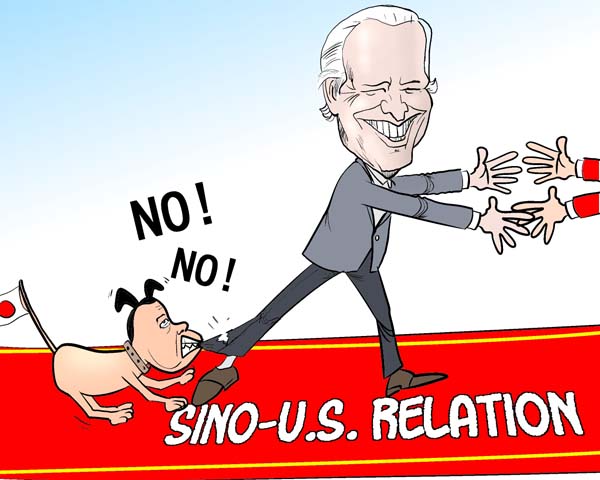Managing differences constructively
- By Shen Dingli
 0 Comment(s)
0 Comment(s) Print
Print E-mail chinausfocus.com, December 10, 2013
E-mail chinausfocus.com, December 10, 2013
The title of this essay is taken from what the US Vice President Joe Biden addressed when he met with Chinese President Xi Jinping in Beijing on December 4, 2013. If this was what meant, it looks that the VP and the US are getting more mature. Even if this didn’t tell all truth, it still illustrated where the US was acceptable, as the sole superpower in the world, in dealing with all sorts of delicate international issues.
|
|
|
Biden's feeling the bite [By Jiao Haiyang/China.org.cn] |
During his visit to China, Mr. Biden has discussed with China over a range of issues. Since China has just announced the establishment of the East China Sea Air Defense Identification Zone (ADIZ), America shall be most sensitive about this, as it has openly demanded China to revise its rules of this ADIZ. Both China and the US shall not shun the issue, since failure in addressing it adequately could add to their suspicion, impairing their effort to co-develop a new type of major-country relationship. Then how to tackle it – managing differences constructively, as put by Mr. Biden.
The world is composed of various countries and regions, with its members naturally forming complicated relationship such as cooperation, competition and even confrontation. As the situation stands, defense, offence and counterattack would be their usual means employed in the domain of their national security, be such purpose defensive or offensive., The ever-evolving security relations between among nations thus constitute the whole chain of international security ties.
It is the core mission for a sovereign country to protect its territory, territorial waters (if any) as well as the airspace above commonly known as the territorial space up to some 80 kilometers. It is an evident necessity, therefore, for a coastal country to extend its monitoring and early-warning range beyond the baseline of its territorial water for the purpose of effective protection of its territory and territorial waters. The United States established its own air defense identification zone (ADIZ) as early as in 1950 to include high sea hundreds of miles away from its baseline territorial waters, deeply intruding into the high seas. However, though the US demands all foreign flight vehicle entering its zone and fly toward its land to notify their flight info in advance, it has neither expanded its territorial waters nor banned the entry of foreign flight vehicles. At times of need, however, it will still send its jet fighters to follow a foreign aircraft.






